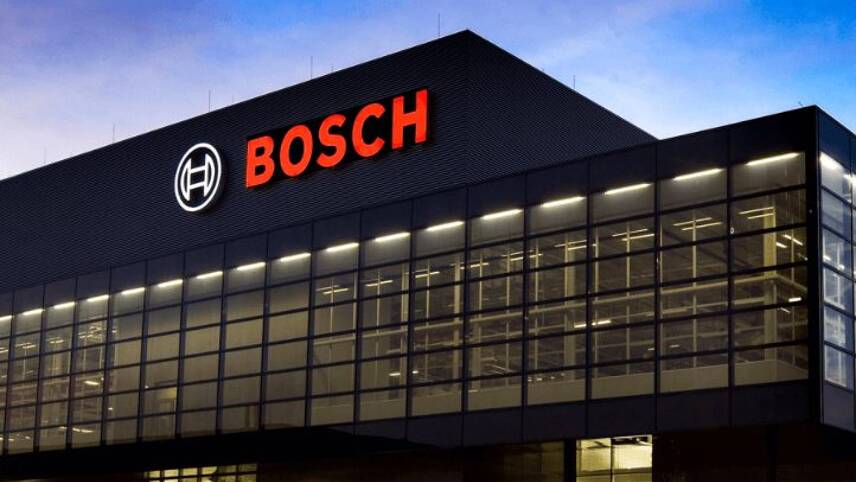Register for free and continue reading
Join our growing army of changemakers and get unlimited access to our premium content

By 2030
The commitment will cover all 400 of Bosch’s directly owned and managed facilities across the world, spanning across its direct (Scope 1) and power-related (Scope 2) emissions. It does not apply to Bosch’s indirect (Scope 3) emissions created by its supply chain and through the use of its products and services, which the company is yet to measure.
In order to reach its new 2020 goal, Bosch intends to increase its annual investments in energy efficiency technologies to €100m through to 2030, purchase more renewable power and install more onsite solar arrays, following the success of its large-scale rooftop solar projects on factories in Bidadi and Nashik, India. Overall, it is aiming for 40% of its energy consumption to be met with wind and solar power by 2030.
At present, 26% of Bosch’s energy needs are met by power generated through the direct combustion of fossil fuels. To achieve carbon neutrality in its Scope 2 emissions, the multinational will therefore use carbon credits to offset this proportion of its carbon footprint. The credits will be used to support the construction of new renewables arrays across the world, and to subsidise the purchase of green energy in nations where fossil fuel power is still much cheaper.
Bosch Group’s chair of the board of management Volkmar Denner said the decision to set a carbon-neutral target was taken in the wake of the Intergovernmental Panel on Climate Change’s (IPCC) landmark report on global warming. Published in October 2018, the report states that global carbon emissions must come down to zero by 2050 if the global temperature increase is to be limited to the Paris Agreement’s most ambitious 1.5C pathway.
“While we had initially planned to achieve this target in the next decade, the IPCC’s special report shows that immediate action is needed, and we at Bosch are in a strong position to move forward in this regard,” Denner said.
“If we are to take the Paris Agreement seriously, then climate action needs to be seen not just as a long-term aspiration. It needs to happen here and now.”
The commitment was revealed as part of Bosch Group’s annual sustainability report, which notes that the company is in the process of developing a verified science-based target for its Scope 3 emissions.
A new generation of ‘zeronauts’
Bosch is one of many companies to have set a net-zero or carbon neutral commitment in recent months, in light of the IPCC’s findings. Technology giant BT, for example, committed last year to become a net-zero-carbon business by 2045, building on its existing science-based target to reduce emissions by 87% by 2030 against a 2016/17 baseline.
Elsewhere, the world’s largest container shipper, Maersk, is targeting carbon neutrality by 2050. The move will see Maersk work with governments and industry in order to help spur the development of net-zero vessels and shipping fuels in a bid to make these technologies commercially viable by 2030.
Other so-called “zeronauts” – businesses to have committed to a net-zero or net-negative carbon pathway – include the likes of modular flooring firm Interface, supermarket chain Aldi UK and Ireland and football club Forest Green Rovers.
Sarah George


Please login or Register to leave a comment.